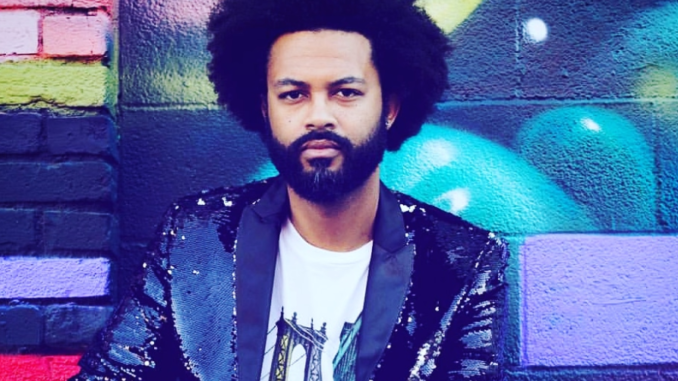
Thanks for your time! Let’s start off with learning more about you – what is something you do in your free time when you aren’t pursuing music?
Absolutely! Hopefully you all had a happy holiday . I love learning. It’s something that always makes me feel like a kid and it’s so energizing. Lately I’ve been learning a lot about colonialism and how it affected indigenous tribes across the globe but in particular in Central and North America.
I think that learning about cultures and history is a way to honor and give a voice to the deceased. Our ancestors are always around us wishing to tell us the stories of the lives they’ve lived. And the reason I seek to learn isn’t to assign blame, but to understand our current circumstance and to be an ally.
The more I learn the bigger my perspective gets and simultaneously the larger my world is and it informs me that I know even less about the universe. I think some might find that thought intimidating, but for me it’s reassuring and inspiring. I learn new ways to help.
The music business can be tough, what is something you would change if you could?
Great question, I love it! The idea that someone else’s success is your failure, and here’s why:
It’s a myth. Whenever bands and artists, their fans, and the mechanical parts of the industry come together they grow the market.
Metal is still a really big market in the midwest, particularly in central Iowa where I grew up. I was so jealous of the metal scene and would regularly attend shows because they were some of the few to be seen live and that’s how much I love music. But it’s also because fans of metal care little about anything except the music. They show up for every show, their culture is centered around it, the bands are all very helpful to one another (barring some exceptions), the venues know exactly what they’re in for and try to make it as safe as possible for the scene.
At the same time, all of the other genres were busy being secretive, having separate shows, being clicky, venue owners were blaming bands for poor attendance and bands were doing the same to venues. There wasn’t any collaboration between artists, everyone was so concerned about the bottom line or how many followers or fans they could get.
That’s a poisonous attitude to have, I think. The bigger you make the scene, the more bands you can support, the more fans you gain, the more buzz about your town and the artists in them, the more people support, the more the venues make, the more albums you sell and streams you get, and on and on.
Before I left the twin cities this past year I started watching this exact thing happen in the country music scene. People began collaborating, creating events, presenting awards. A friend of mine got extra involved and aligned with the Midwest Country Music Association and they’ve done a really great job changing the scene from the idea that if one country artist is getting a gig that someone else is missing out into “lets grow country music in the Midwest.”
I think if we stopped looking at other artists as competition and started looking at them like allies we could grow just about any market.
Tell us what have been some challenges in your career so far? What have been the greatest achievements so far?
Biggest Challenge? I think beginning music so completely isolated from any parts of the industry that I could grow or thrive in. Looking back I should have left the midwest sooner. It’s not that you can’t be successful there as an artist, you’ve just got to have connections and be plugged into the right community and for Pop / Soul / Funk? I was an island unto myself!
Greatest achievement? I just won my first award for songwriting! “Dance Warrior” won an Honorable Mention award in the R&B/Hip-hop/Urban category from the Mid-Atlantic Song Contest. I feel pretty blessed. Particularly when I wrote, performed, recorded, mixed and mastered the song myself. Paul Mathis helped on drums and Ben Shaffer helped out on bass.
When you are performing do you ever experience performance anxiety or stage fright? If so, what do you do to combat it?
I rarely do. If I do it’s because I’m unprepared for a show. When I was first playing music for Reverend Doctor I would get nerves. It was my first time performing solo in about 6 or 7 years. This happened for about three to four months. I haven’t experienced it since. Something I know about myself is that the nerves disappear once I’m on stage. For me I look in the audiences eyes and want to provoke them. Make them move, dance, laugh, anything to interrupt their life. Because I know that’s what I want when I’m standing in an audience.
You have accomplished so much in your career, what big dreams are you chasing next?
I’m keeping it simple for now: I’d like to grow this Reverend Doctor thing and continue to introduce them to as wide of an audience as possible. I have new music coming out at the beginning of this year and I can’t wait to show it to the world and to hear more people connect to the challenges of loving themselves and each other.
Where can we find you online to follow and support you?
INSTAGRAM: www.instagram.com/_reverenddoctor/
FACEBOOK: facebook.com/revdrmusic/
TWITTER: twitter.com/revdrmusic
End of Interview
